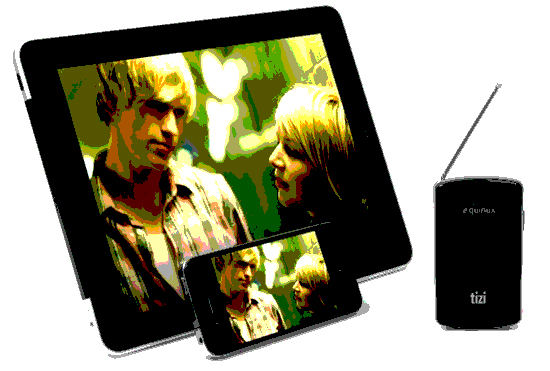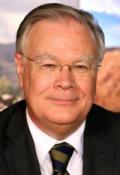
COMMENTARY: Adapted from a speech by broadcaster and media commentator David Beatson at the annual AUT School of Communication Studies Awards on 3 April 2012:
New Zealand is entering the multimedia digital age. Are we ready for this? I don’t think so.
They used to say: “Never pick a fight with anyone who buys ink by the barrel … owns a radio station, or runs a TV network.”
But now the list is far longer. Peter Lewis, senior writer at The New York Times, puts it well: “Never pick a fight with someone who gets 500,000 unique site visitors a month.
“Anyone who has 50,000 Twitter followers.
“Or anyone who has a black belt in search engine optimisation.”
But – what the hell. It’s worth a try.
Our media landscape is changing dramatically. Anyone who wants to survive in media needs to learn to ride the new waves.
Brave talk
Despite all the brave talk about the power of the blogosphere and the potential for citizen journalism, New Zealand is going to need a new generation of professionally grounded journalists.
I grew up in a world where the communicator’s basic task was defined simply: inform, educate and entertain.
Now, the internet is converging with the traditional top-down mass media to add a fourth dimension to communication – engagement: real engagement with the public we serve.
Mass media communication is no longer the one-way, top-down process it used to be. Now the traffic runs two ways – and the consumer is talking back.
Our public – the consumers of all the forms of communication you will provide – are going to demand more and more accountability from those who wield political or commercial power over their lives.
For true public accountability, our communities– are going to need skilled practitioners who can provide continual access to information that is credible, verified by multiple sources, and up-to-date.
Modern New Zealand is a society that embraces one of the most diverse ranges of ethnic, social and cultural communities in the world.
Communications need
But our public as a whole needs communications professionals that communities learn to trust to gather, analyse and disseminate the information that’s important to the way they define, defend and advance their common ground in a well-informed society that participates fully in the processes of democratic government.
All New Zealanders need people who are trained to ask tough questions, chase leads, deal with confidential sources, translate technical complexity into clear prose, provide accurate accounts of current events, and logical analysis of the options for change that lie ahead.
But just as the public demands accountability from the decision-makers in our society, they will also demand it from the media gatekeepers managing the processes of communication between our decision-makers and the public they claim to serve.
Right now, we are walking blindly into this challenging age of digital media convergence. We have not properly considered its implications.
The AUT’s Centre for Journalism, Media and Democracy fingered a big part of the problem in its most recent report on New Zealand media ownership.
Four companies – all overseas owned – dominate our mass media: APN, Fairfax, MediaWorks, and Murdoch’s Sky/Prime networks. How accessible are these decision-makers?
They operate a near duopoly in two of the three main media (print and radio) – a monopoly in pay television – and drive three of our six significant free-to-air TV networks against the state-owned TVNZ channels and the state-funded Māori Television Service.
Commercially driven
All our broadcast media - except the Māori Television Service and Radio New Zealand - are now totally commercially driven, and absolutely dependent on advertising revenue for their survival.
State funding for MTS and Radio New Zealand is frozen for the foreseeable future. So is the funding available to NZ On Air for purchasing what our government defines as public broadcasting services.
The non-commercial, public service channels that TVNZ was funded to create as teasers to entice people to convert more rapidly to digital reception - are being closed and replaced by commercial and pay-to-view channels. TVNZ 6 is gone – TVNZ 7 goes in two months time.
The New Zealand-owned Stratos digital channel is gone. The New Zealand-owned Documentary channel is gone.
Our pay TV monopoly SKY is ramping up its contest for advertising revenue via its free-to-air Prime TV network – expanding rapidly into the internet where its real rivals will emerge – and embracing one of its free-to-air broadcast rivals.
State-owned TVNZ is growing its range of commercial partnerships with the Murdoch’s SKY pay TV operation – and putting pressure on NZ On Air to focus more of its funding on the production of “commercially attractive” local content.
Monetising content
APN and Fairfax are rationalising print media, and digitalising their way into on-line services to monetise more of their editorial content.
Their contest has crushed the New Zealand Press Association in a move that creates real gaps in the nationwide news flows to communities where the presence of APN or Fairfax is limited or absent.
Strangely, we see a cash-strapped government freezing funding for public broadcasting services – but granting loans to commercial broadcasters – MediaWorks and nine other radio broadcasters – that softened the impact of the new licence fees they were supposed to pay last year.
The shift to digitalisation creates new revenue opportunities for the government – but it is also ramping up the transmission and distribution costs of every broadcaster in the country – creating significant medium term benefits for the state-owned transmission service provider Kordia and squeezing the life out of our small, independent, locally-owned broadcasters.
My prediction is we will see very few of our 17 regional and community television broadcasters make it through the expensive transition from analogue transmission and reception - to the digital world where they have to dance on many screens – ranging from cellphones, to laptops, to home receivers tuned to satellite and terrestrial TV transmissions.
We are not walking into a digitally enriched New Zealand – we are walking into a cold, hard new world where a digital communications divide will be added to all the other divisions in our society.
I am talking about the information-rich and the information poor.
Digital switchover
The high speed broadband system will only reach 75 percent of the population by 2025 … What about the other 25 percent?
At digital switchover in June next year, more than 51 percent of our homes will be purchasing monthly services from the SKY satellite system, while the Freeview free-to-air satellite service will reach just 33 percent of our homes.
The Freeview terrestrial transmissions – the service that carries regional and community TV - will reach just over 17 percent of our home.
And 20 percent of our homes will be taking both SKY and Freeview services.
Where is the policy to ensure the public’s airwaves – leased to, not owned by commercially-focused telecommunications and broadcasting organisations – deliver media services of broader public value?
I am talking about democratic value – cultural and creative value – educational value – health value – civic, community and social engagement value – not just commercial value… the staples of our nation’s life.
These are values that have to be delivered by systems that are universally accessible – because they need to be freely available to everyone regardless of their individual means.
Fairness and equity
They are values that must be delivered with fairness and equity – because it is in the common interest that public media delivers those important non-commercial values in ways that reflect the needs and interests of the diverse communities that must interact in our society.
And they are values that must be delivered with accountability – so the public funds used to provide public media services are monitored to ensure they produce the public goods that we – collectively – consider are important to our nation’s wellbeing.
If we don’t recognise the importance of these values – the big digital switch on will be a big switch off in our progress towards a more participative democracy in New Zealand.
We have got some big gaps to fill as we gallop into the brave new world of totally digital media next year.
That is a challenge I hope you’ll grasp willingly as our next generation of professionally grounded communicators, because it’s your world we’re talking about.
This work is licensed under a Creative Commons Attribution-NonCommercial 3.0 New Zealand Licence.




